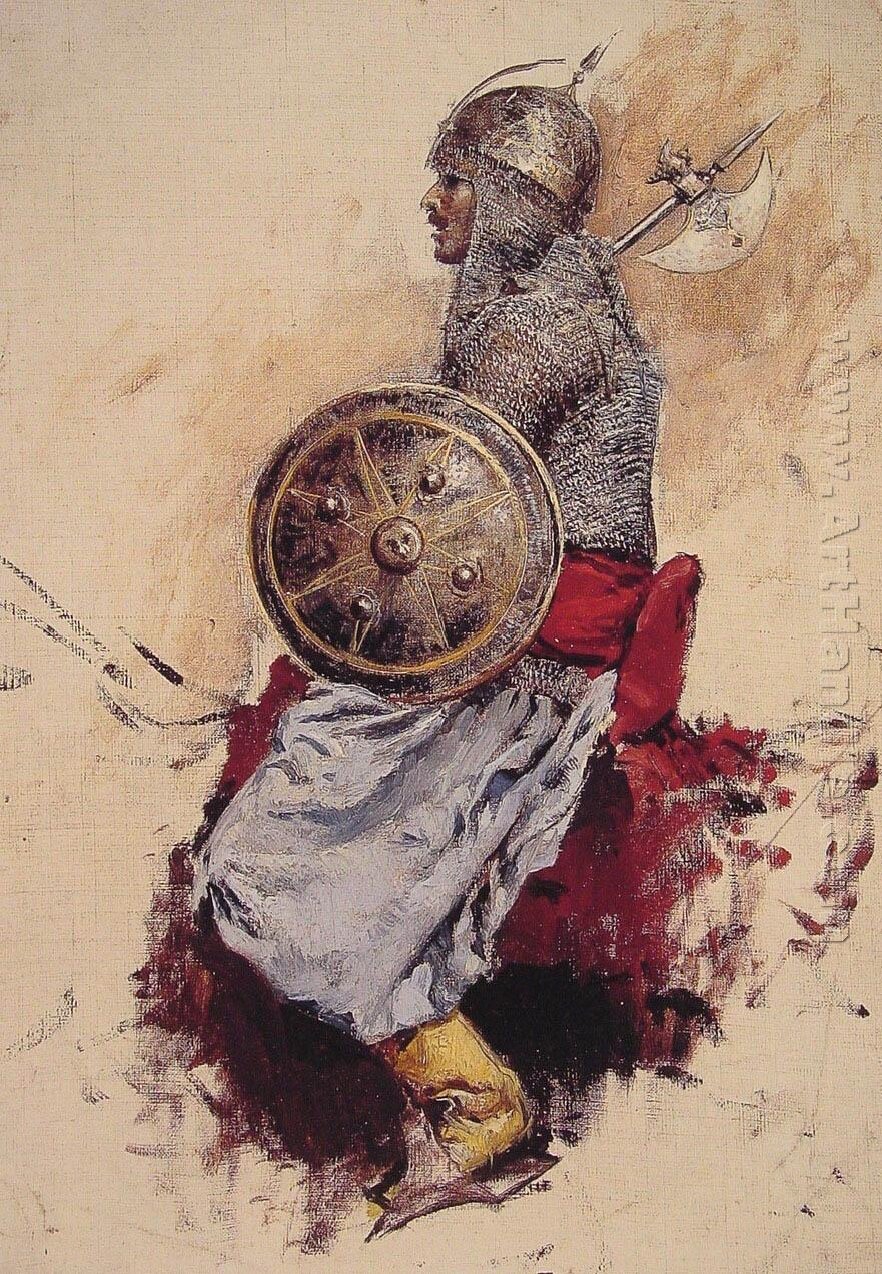Secondly...
I was talking with Strix a few days ago about fostering diversity in gaming (and in the OSR in particular). One of the topics that came up was the implicit narrative that a system winds up imparting by the structure of its rules.
 |
| Trampier, AD&D Monster Manual |
This isn’t exactly untrodden soil, particularly in the OSR; there’s been a good deal of electronic ink spilled on taking the implications of the rules as written and using that to understand the intended setting. (See James’s post here, asking what the hell the presence of the OD+D ranger says about the implied world of OD+D, or Chris's post here discussing the broader societal implications of the presence of low-level fighters in AD+D). And there are oodles of discussions re: the implications of GP = XP and the implied frontier town setting and all that, which I'm too tired to link right now but y'all know what I'm talking about.
But Strix pointed out that there's another factor to consider with those rules and their implied settings, beyond the fictional environment that goes along with them. There's also an interaction between the rules and the player, and that interaction can determine whether or not someone wants to come hang out at your table - or has any interest in working with the stuff that's on your table.
There's an implied narrative in baseline OSR stuff of "get rich or die tryin'," at least at low levels. Obviously that's not a universal (see: Wampus Country, Beyond the Wall or Godbound for example), and the extent to which that is true in play winds up hinging on the DM and their campaign/setting construction. But that baseline narrative is there, and it can be a turnoff for folks, because of actually dealing with the awful stuff that said capitalism can wind up bringing into their everyday lives.
 |
| Mansion from Arrested Development, by Matt de Lanoy, from here. |
Or, to put it another way (since I think my Lego analogy got away from me a bit), look at the reaction to the 5e paragraphs discussing how "yes, it's OK to have PCs who don't necessarily conform to expected roles re: gender and sexuality." For most of the folks in our circles, this was a shrug, because it was already happening and has been for ages and ages. But there are lots of people who felt encouraged and welcomed by those paragraphs.
What does this mean for fostering a more diverse community within OSR circles?
Part of it, which has already been touched on elsewhere, is hiring and supporting authors/editors/designers whose voices might not be heard otherwise, and who aren't necessarily as broadly represented in our neck o' the woods as they could be. Not just hiring them for existing projects, but giving them space to tell their stories and present their perspectives. (For an awesome example of this, check out the latest printing of Swords + Wizardry, spearheaded by Stacy Dellorfano; also check out Stacy's discussion of the thought behind the selection of their design team and the increased utility that brought to S+W here. Also consider giving some support to ConTessa.)
Update, 2019: I can no longer recommend purchasing Swords & Wizardry or any other Frog God Games products, given FGG CEO Bill Webb's record of harassment at conventions. You should still consider supporting ConTessa, or checking out/supporting Stacy's current RPG design work over at their Patreon.
But another part is making sure that a playstyle doesn't feel like dealing with it is going to be an aggravating and hurtful process - and highlighting that fact.
Personal story time.
 |
| "Man in Armor," Edwin Weeks |
But that got leeched away as the years went by and I bought into the oroborous-ness of late '90s TSR
(and D&D novels; I was the coveted D&D player as brand fan). And my fantasy became a fantasy I didn't even notice lacked people who looked like me.
I want to foster a diverse community of OSR creators because I want to do what I can to make sure that other folks never have that same sort of sick feeling on their end. That's a major goal of mine, regardless of whether I'm wearing my GM hat, my OSR community member hat, or my Hydra Coop partner hat.
Relevant further reading:
- Marx and Monsters
- City of Brass and its explicitly "West Marxist" gamestyle
- Thoughts on building non-heteromasculine settings
- Arthurian Problems
- How the DIY Scene Is Different When You're Black ("For most people, DIY isn’t just about the desire to subvert but having a place to do so")
- The Kominas Raise Two Middle Fingers to Punk Rock's Whiteness
Okay, that is a lot of words (for me, at least) and not much in the way of gameable stuff. I owe y'all some Joesky Tax; expect other entries soon.
